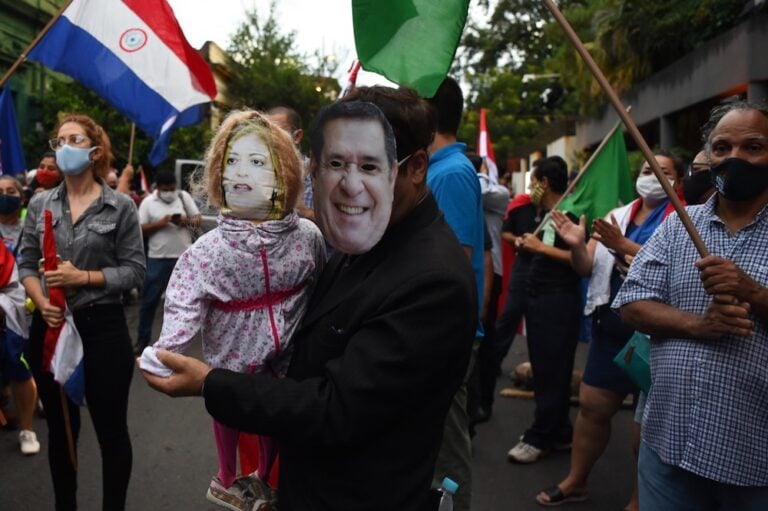(SPP/IFEX) – The following is a 3 May 2006 SPP press release: SPP Report on the occasion of World Press Freedom Day Caught among the mafia, patronage pressures and state terrorism World Press Freedom Day finds Paraguay suffering a general deterioration in the working conditions of journalists, who, in large parts of the country under […]
(SPP/IFEX) – The following is a 3 May 2006 SPP press release:
SPP Report on the occasion of World Press Freedom Day
Caught among the mafia, patronage pressures and state terrorism
World Press Freedom Day finds Paraguay suffering a general deterioration in the working conditions of journalists, who, in large parts of the country under mafia control, still operate with their lives in constant danger.
The links between the mafia and government institutions (the police, public prosecutors’ offices, the judiciary, etc.) has resulted, over the last 15 years, in the deaths of four journalists (Santiago Leguizamón, 1991; Calixto Mendoza, 1997; Salvador Medina, 2000; Samuel Román, 2004) and in the disappearance of another, radio journalist Enrique Galeano.
Threats, attempts on journalists’ lives, and other forms and levels of harassment, as well as commercial and government pressures, impose unacceptable limits on the practice of journalism.
The state has contributed to the deterioration of journalists’ working conditions in having not promoted calls for the retention of social security and in having not ensured that working hours and conditions comply with the law. It is also complicit in having reduced to a minimum, through CONATEL, the frequency spectrum available for the use of community or “alternative” radio stations.
The state, which is highly corrupt and has such obvious connections to the mafia, also controls media though the public relations work of its bi-national agencies. These are often used to silence denunciations of corruption in those institutions that do not serve the country, but serve only those who have exploited national wealth for their own benefit.
Freedom of the press is also undermined by the high concentration of media ownership, as media technologies become increasingly inaccessible to workers and their organisations. This has led to an almost complete corporate monopoly, with the same corporations that own media outlets also owning supermarket chains and cellular phone and import-export businesses.
The dominance of these economic interests in the realm of media influences what information is transmitted and the aesthetics of communication, reducing to a minimum any kind of pluralism in media, and reducing the wonderful vocation of journalism to its most base and limited form.
This dangerous situation, combined with the low or irregular pay given journalists plus the continuous threat of losing one’s job, leads to a high degree of professional frustration and renders journalists very vulnerable in the face of corruption. Corruption, that is, not only in its governmental form, but also which stems from the patronage of commercial interests.
A high percentage of our colleagues are obliged to obtain advertising to fund their work of informing the public. This situation is especially well-rooted in the interior of the county, where, for example, 90% of all radio stations are controlled by members of the governing party, with its various factions.
The SPP promises to bring to an end these circumstances which so oppress those who do the important work of analysing and reporting on our social reality. The SPP will also continue fighting for the public’s right to information, renewing its commitment to freedom of expression as captured in the statement: “There can be no information democracy without economic democracy.”
Asunción, 3 May 2006
Executive Committee of the SPP
Please note that SPP’s full report on the state of press freedom in Paraguay is only available in Spanish.


